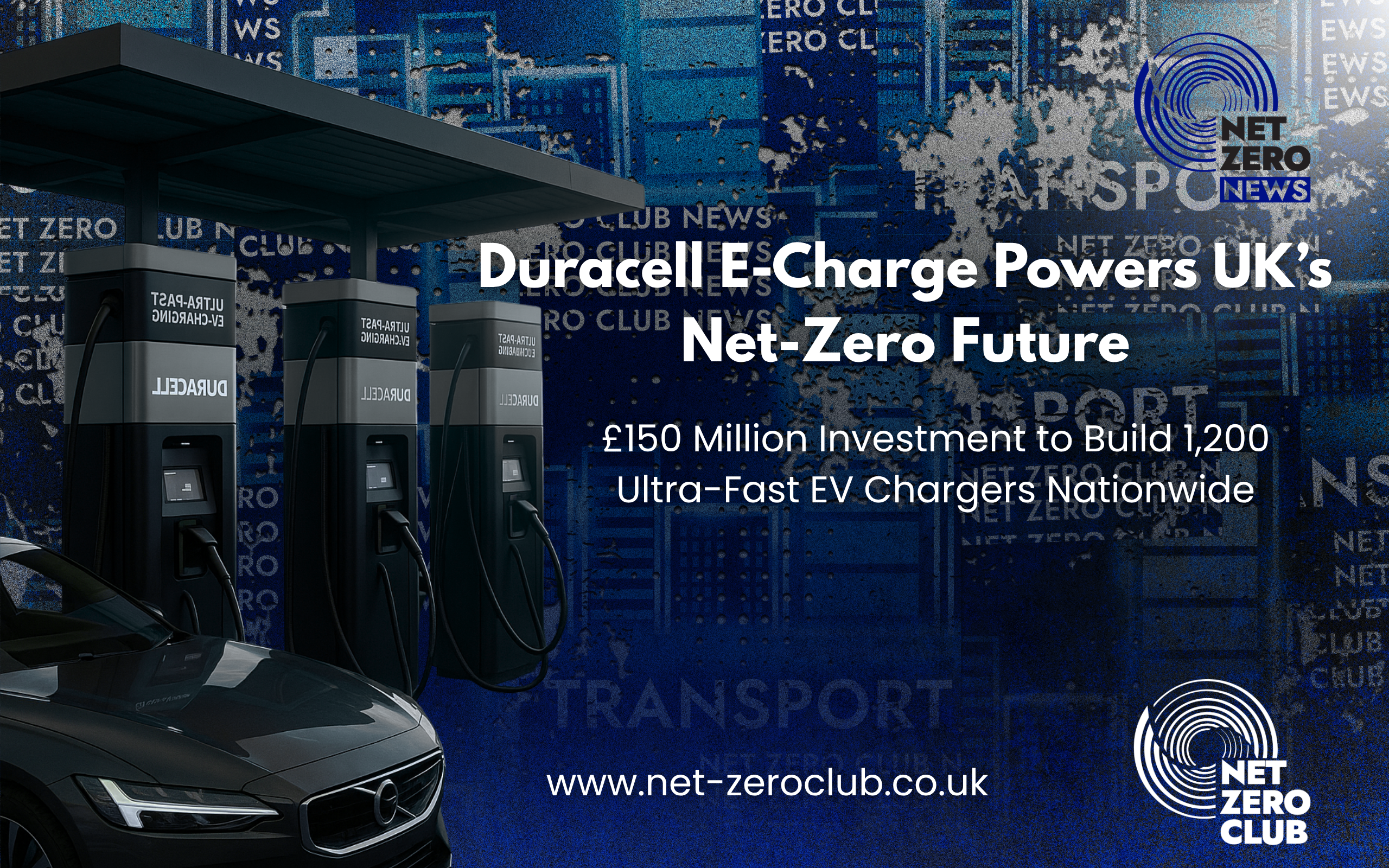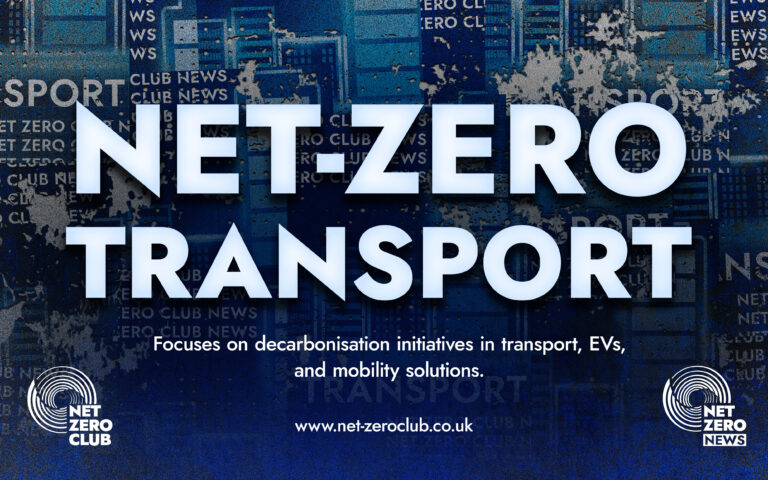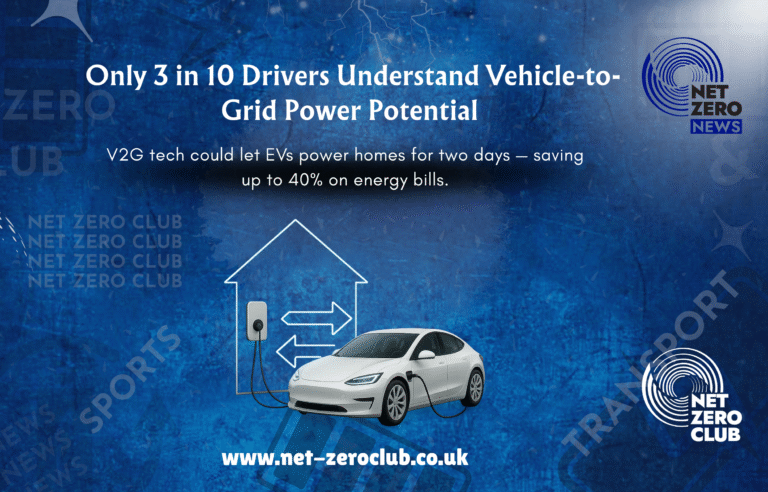Duracell E-Charge nets funding for UK net-zero EV retrofit

Welcome to Net Zero News, where we bring you the latest developments driving the UK’s transition to a net-zero future. Today we report on a major new entrant to the country’s ultra-fast electric vehicle charging market that promises to reshape the landscape for drivers and decarbonisation alike.
In a significant step towards the UK’s net-zero goals, Duracell E-Charge has revealed plans to establish a nationwide network of ultra-fast EV charging stations. The announcement, made in October 2025, confirms that the iconic battery manufacturer will deploy 1,200 new chargers at strategic locations on motorways, A-roads and urban hubs from spring 2026 through to 2030.
Net Zero News can reveal that the Duracell E-Charge network will feature 350 kW-capable chargers, enabling compatible vehicles to regain up to 80% charge in under 15 minutes. The rollout will focus on reducing range anxiety and supporting the planned phase-out of new petrol and diesel cars by 2030, as set out in the UK government’s 10-Point Plan for a Green Industrial Revolution.
Net Zero News understands this forms part of a broader shift towards rapid EV infrastructure growth. The network will integrate smart grid management software to optimise charging speeds in line with renewable generation peaks. This approach is designed to align with National Grid’s Future Energy Scenarios and ensure that carbon intensity at the point of charge continues to fall, bolstering the country’s commitment to reach net zero by 2050.
This development matters because ultra-fast charging networks are critical to unlocking mass EV adoption. By delivering high-power charging at scale, Duracell E-Charge aims to support the projected 10 million electric vehicles on UK roads by the end of the decade. According to industry modelling, each 350 kW charger could replace up to 80 tonnes of CO₂ emissions annually compared to conventional refuelling, driving measurable reductions in transport sector emissions.
Beyond emissions savings, the project is expected to generate hundreds of direct jobs during the construction and operations phases, stimulate local economies along major transport corridors and provide new revenue streams for service area operators. This aligns closely with findings in our recent coverage of the UK’s EV charging strategy launch, which highlighted infrastructure investment as a linchpin in the net-zero transition.
Duracell has secured £120 million in equity financing from global infrastructure funds, pairing its investment with a £30 million grant from the government’s Charging Infrastructure Investment Fund (CIIF). Delivery will be managed in partnership with energy technology specialist GridServe and renewable energy supplier Octopus Energy, who will provide the behind-the-meter charging solutions and green power contracts to ensure zero-carbon supply.
The Office for Zero Emission Vehicles (OZEV) has endorsed the scheme, and negotiations are underway with Highways England to pre-install charging points at key motorway service areas. Local authorities in regions such as Greater Manchester, West Yorkshire and the South East are also set to collaborate on planning consents and grid upgrades, demonstrating a concerted public-private effort.
This programme sits squarely within the government’s Net Zero Strategy and the Transport Decarbonisation Plan. It also complements Ofgem’s EV Smart Charging Plans, which incentivise rapid chargers to shift demand away from peak hours. Net Zero News reported earlier this year on how grid flexibility measures are becoming vital to accommodate large-scale EV uptake without compromising system stability.
Communities along the proposed sites stand to benefit from reduced air pollution and improved amenities at service areas. The introduction of high-power chargers will catalyse the adoption of EVs in rural and semi-urban locales, helping to bridge the charging divide identified in our feature on rural community energy schemes. Small businesses, hospitality operators and local supply chains will gain fresh opportunities tied to increasing EV footfall.
The automotive and energy industries will be closely watching Duracell E-Charge’s progress, as early operational data will inform future network expansions and private-sector confidence. Innovations in battery-to-grid integration are also being tested within this framework, potentially enabling vehicle owners to export stored energy back to the grid in times of peak demand.
Looking ahead, Duracell E-Charge plans to commence ground-works in early 2026, with the first tranche of 250 chargers set to go live by late summer. A phased deployment will follow, culminating in full national coverage by the end of 2030. Stakeholders will convene at the upcoming Net Zero Nations Projects Conference to share insights on large-scale charging rollouts and grid readiness.
—
6. Fixed CTA Block (End of Every Article)
—
Net Zero News is powered by the Net Zero Club (https://www.net-zeroclub.co.uk).
Join the UK’s fastest-growing net-zero community.
Upcoming Events:
– Net Zero Scotland Projects Conference (https://www.net-zero.scot/private-sector-register)
– Net Zero Nations Projects Conference (https://www.net-zeronations.co.uk/private-sector)
Got a net-zero project to share? Email: lee@net-zero.scot
—

 Got net-zero news, project updates, or product launches to share?
Got net-zero news, project updates, or product launches to share? 
